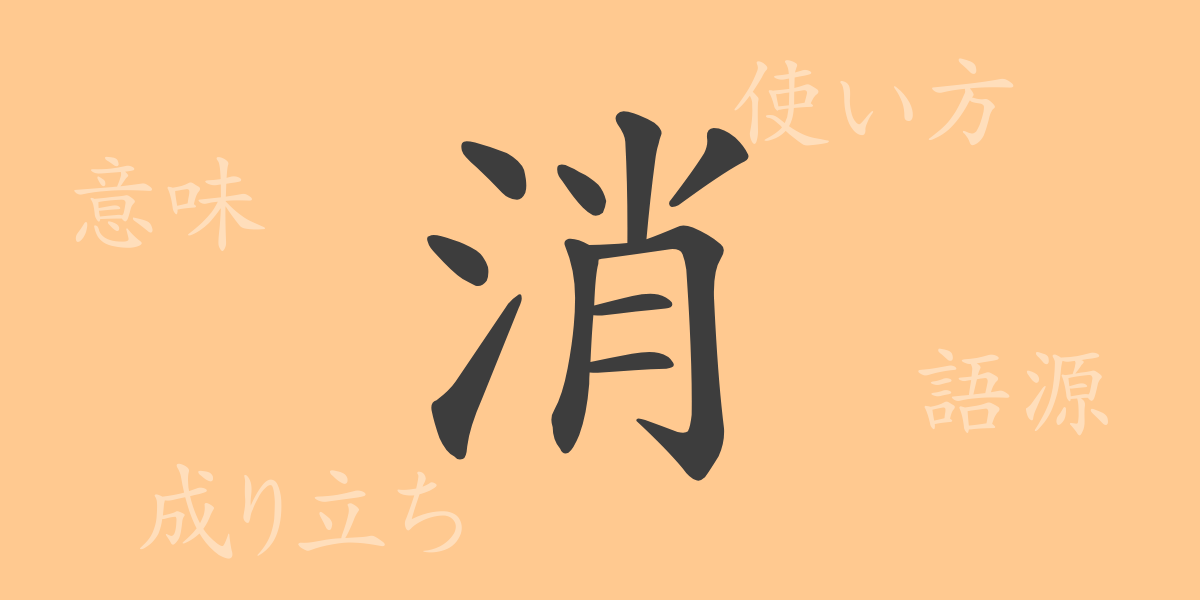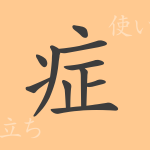The richness of the Japanese language is reflected in its characters. Among the commonly used kanji in Japan, “消(しょう)” is particularly prevalent, playing a significant role in enhancing the meanings of words across various aspects of our lives. This article delves into the kanji “消(しょう)”—from its origins to its contemporary usage, including phrases and idioms, uncovering the charm embedded within this character.
Origins of 消(しょう)
The kanji “消(しょう)” originated in ancient China as a pictograph. Initially, it combined the elements of ‘water’ represented by “氵(さんずい)” and ‘to summon or beckon’ depicted by “召(しょう)”. This combination symbolized something disappearing or being erased by the flow of water. Over time, the meanings of extinction and deletion were incorporated, broadening its usage in modern contexts.
Meaning and Usage of 消(しょう)
The primary meanings of “消(しょう)” include ‘to disappear’ and ‘to extinguish’. It’s used not only to denote physical disappearance but also metaphorically, as in ‘dispelling fatigue’ or ‘vanishing worries’. Additionally, it encompasses economic and biological processes like consumption and digestion.
Pronunciation, Stroke Count, and Radical of 消(しょう)
“消(しょう)” is a frequently used kanji in Japanese, known for its distinctive pronunciation and structural elements:
- Pronunciation: The on’yomi (音読み) is “しょう”, and the kun’yomi (訓読み) are “きえる” and “けす”.
- Stroke Count: “消(しょう)” consists of 10 strokes.
- Radical: The radical is “氵(さんずい)”, associated with water-related characters.
Phrases and Proverbs Using 消(しょう)
There are many idioms, phrases, and proverbs that include “消(しょう)”, each with its unique meaning and nuances:
- 消化不良(しょうかふりょう): A state where things remain unresolved or undigested.
- 消火活動(しょうかかつどう): Activities aimed at extinguishing fires.
- 消極的(しょうきょくてき): Describes a passive or unassertive attitude.
- 消耗戦(しょうこうせん): A war of attrition where both sides gradually deplete each other’s resources.
- 消息(しょうそく): News or correspondence, often used in the phrase “消息を絶つ” meaning to lose all contact.
Summary on 消(しょう)
The kanji “消(しょう)” from its inception to the present day carries a variety of meanings and uses. From its basic implications of disappearing or extinguishing to more complex applications in phrases like digestion, consumption, and passivity, “消(しょう)” enriches Japanese expressions significantly. Understanding and appropriately utilizing these expressions can greatly enhance one’s proficiency in the Japanese language.

























